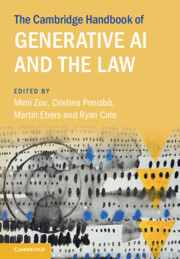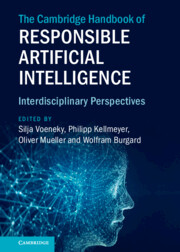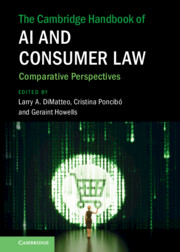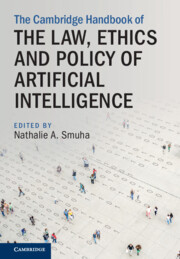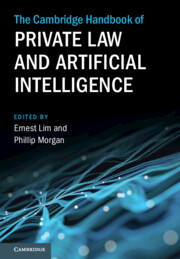The Cambridge Handbook of Generative AI and the Law
This handbook offers an important exploration of generative AI and its legal and regulatory implications from interdisciplinary perspectives. The volume is divided into four parts. Part I provides the necessary context and background to understand the topic, including its technical underpinnings and societal impacts. Part II probes the emerging regulatory and policy frameworks related to generative AI and AI more broadly across different jurisdictions. Part III analyses generative AI's impact on specific areas of law, from non-discrimination and data protection to intellectual property, corporate governance, criminal law and more. Part IV examines the various practical applications of generative AI in the legal sector and public administration. Overall, this volume provides a comprehensive resource for those seeking to understand and navigate the substantial and growing implications of generative AI for the law.
- Offers insights into a range of legal and regulatory issues posed by generative AI across diverse jurisdictions, including the EU, US, China, Japan, South Africa, and Singapor
- Brings together experts with extensive academic and practical experience from many different fields including law, computer science, ethics, sociology, economics, and public policy
- Bridges the gap between legal concepts and real-world applications of generative AI
Product details
July 2025Hardback
9781009492584
600 pages
254 × 178 mm
Not yet published - available from July 2025
Table of Contents
- Part I. Understanding Generative AI from Multidisciplinary Perspectives:
- 1. Generative AI: an introduction Tom Melham
- 2. Unleashing creative potential: nurturing trustworthy generative AI Zijie Huang
- 3. Normative and ethical dimensions of generative AI: from epistemological considerations to societal implications Ludovica Paseri and Massimo Durante
- 4. Why generative AI is not Cyrano de Bergerac: a computational manipulation perspective on generative AI Stefano Faraoni
- 5. Unnatural selection? A Darwinian reading of the economic consequences of generative AI on the art market Jerome De Cooman
- Part II. Evolving Regulatory and Governance Frameworks:
- 6. LLMs meet the AIA: who's the sorcerer's apprentice? Ugo Pagallo
- 7. Mapping generative AI liability cases in the EU legal framework Teresa Rodriguez de las Heras Ballell
- 8. Challenges for foundation model liability and regulatory regimes: an analysis of US law Peter Henderson
- 9. Navigating China's regulatory approach to generative AI Lu Zhang and Mimi Zou
- 10. Singapore's evolving AI governance framework Jason Grant Allen and Jane Loo
- 11. International cooperation on generative AI governance: towards a common framework to advance human rights, democracy and rule of law Hiroki Habuka, David U. Socol de la Osa
- 12. Generative AI and international standardization Sebastian Hallensleben
- 13. Private ordering and generative AI: what can we learn from foundation model contracts and licenses? Lilian Edwards, Gabriele Cifrodelli and James Stewart
- Part III. Generative AI: Specific Legal Questions:
- 14. Generative AI and non-discrimination law in the EU Riccardo de Caria
- 15. Generative AI and data protection in the EU Hannah Ruschemeier
- 16. Expanding the privacy paradigm: Generative AI and the evolution of US legal norms Elana Zaide
- 17. Generative AI and IP under US law Bruce Boyden
- 18. Copyright and generative AI in Japan and China Christoph Rademacher and Wanru Cai
- 19. Redefining rivalry: generative AI and the evolving landscape of competition law Sylvia Papadopoulos
- 20. Generative AI and EU consumer law Cristina Poncibò
- 21. Generative AI systems and corporate governance Patrick O'Malley
- 22. Generative AI and criminal guilt: when no one meant to harm Beatrice Panattoni
- Part IV. The Use of Generative AI in Legal and Related Sectors:
- 23. Automating legal tasks: LLMs, legal documents and The AI Act Rūta Liepiņa, Francesca Lagioia, Marco Lippi, Przemysław Pałka, Hans-Wolfgang Micklitz, Giovanni Sartor
- 24. LawGPT: Generative AI and legal services regulation Martin Ebers
- 25. Generative AI and Article 6 of the European Convention on Human Rights: the right to a human judge? Mimi Zou and Ellen Lefley
- 26. Generative AI in public administration Sophie Weerts.

